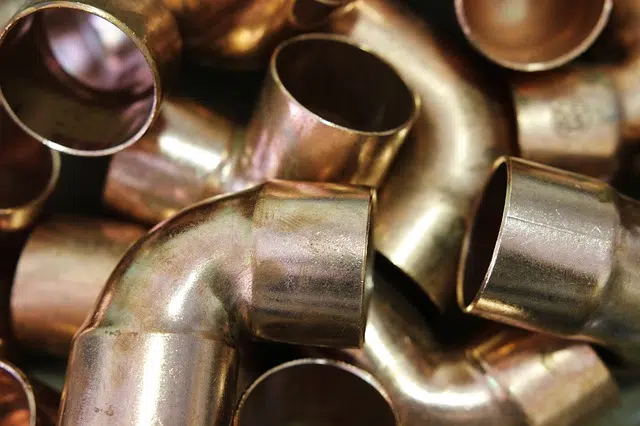
Without mechanical processing it would not be possible to produce these metal connectors
The action of processing is known as processing , according to the Royal Spanish Academy ( RAE ) in its dictionary. The verb process , meanwhile, refers to the development of programmed operations or a transformation process. Mechanical , on the other hand, can refer to what is done automatically or what causes physical effects such as erosions or shocks.
Modification of a material
Mechanical processing is the work that allows achieving a physical, structural or shape modification of a material . The work is usually carried out to transform plastics , metals and wood , for example.
These actions are carried out by applying a mechanical force , whether tension, compression, flexion or another kind. Depending on each case, you can work on hot or cold material.
It is necessary to modify the materials to adjust to the particular characteristics of each product. For example, when we say the word "plastic" we are framing a large number of different types of materials, which are used for products as diverse as a food container for the refrigerator and a toy doll, without forgetting the casings of many devices. electronics. Clearly, not all of them use the same kind of plastic.
Tension, compression and bending
Above we mentioned three concepts of mechanics that are fundamental to understand some of the phenomena to which materials are subjected throughout mechanical processing: tension , compression and bending . The first is the force that can be exerted through the action of a solid object such as a chain, rope or cable, among others, which results from the electrostatic attraction of its particles when it undergoes a deformation that separates them, taking them beyond their equilibrium position.
With respect to compression , it involves applying balanced forces towards the interior of a material, starting from several points, with the purpose of reducing its size or structure. In short, we could say that this concept used in mechanical processing is opposite to that of tension in terms of the direction of the forces, since the latter applies them outwards. In the field of industrial engineering , one of the material properties that receives the most attention is compressive strength , which is calculated in load per unit area and is usually expressed in kg/cm2.
Finally we have bending, a type of deformation that elongates the material at an angle perpendicular to its longitudinal axis. In more practical terms, let's think of a cylindrical bar of flexible plastic that we take from both ends and arch: this curve will have a direction that will form a 90-degree angle with the imaginary line of the bar at rest. In this framework, the force generated by bending is called bending moment .

Plastic is a material that changes a lot depending on the mechanical processing applied.
Some examples
In a broad sense, mechanical processing encompasses multiple materials or substances. Oilseeds, to mention one possibility, can be subjected to mechanical processing for oil extraction.
There are machines that are responsible for the mechanical processing of meat . These equipment, according to the characteristics of the product to be obtained, make it possible to generate numerous highly precise cuts, taking care of consistency and appearance.
Less time, greater productivity
At a general level, mechanical processing is a task carried out with machinery that saves time and achieves various productive advantages. The process can be carried out in different ways depending on the industry and the materials or raw materials in question. Investing in mechanical processing, in short, is a decision that multiple companies make to improve their competitiveness.
